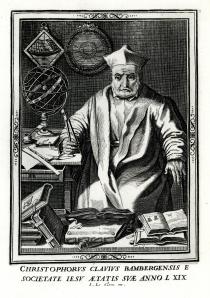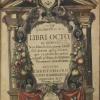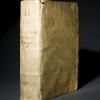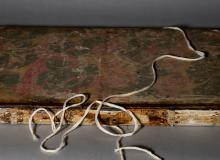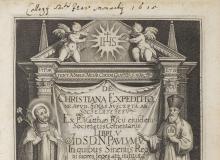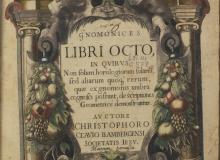Christopher Clavius
The German Jesuit priest, Christopher Clavius (1538-1612), was famous in his own lifetime for his work as a scientist and mathematician. He was well known as an astronomer and was the main reformer of what has become known as the Gregorian calendar. His textbooks on Euclid, on astronomy and on time-keeping were used throughout Europe and he was instrumental in ensuring that mathematics had a key position in the Jesuits’ Ratio Studiorum, the course of studies that had to be implemented at all Jesuit schools throughout the world. At this time the field of mathematics was much more encompassing than it is today, and included ‘astronomy, physics and engineering’ (in the words of modern Jesuit mathematician, Dennis Smolarski, S.J.).
Clavius’ own life was much more encompassing than just the things he wrote and researched, influential though they were. One of his other main contributions was as a teacher of generations of Jesuits, many of whom became famous missionaries. Clavius had shown his aptitude for mathematics during his own course of studies (he joined the Society of Jesus in 1555) and he was appointed to the Roman College in 1567 as a professor. He was to remain here for the next forty-five years. Thus his influence as a teacher, mentor and friend cannot be under-estimated.
His influence on east-west cultural exchange was also significant. One of his more famous students was Matteo Ricci, who carried several of Clavius’ textbooks with him on his travels through China, and who maintained a correspondence with Clavius until his own death in 1610. The ancient mathematics of Euclid was introduced to China through the Jesuits who had trained at the Roman College and who had imbued the renewed focus on humanism from teachers like Clavius. Ricci was one such graduate of the Roman College and, along with his Chinese scholar friend Paul Xu Guangqi (1562-1633), translated Euclid’s Elements into Chinese language (Jihe Yuanben). The enduring legacy of Clavius’ work as a scholar therefore was not just the information he was able to impart and the rigorous standards he imposed on his students but also the friendships he was able to form. Ricci was one who was both a friend of Clavius and a disciple too.
The Burns Library has several of Clavius’s works and textbooks, including one on spheres, on sundials and on Euclid’s elements of geometry.
